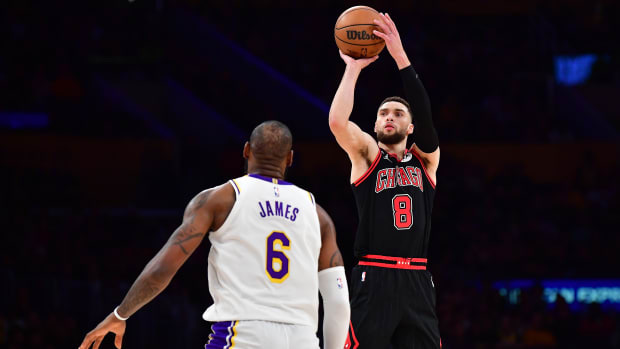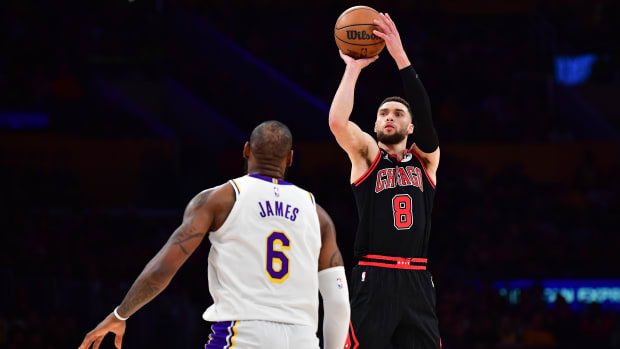Arturas Karnisovas’ tenure with the Bulls has been marked by a mix of public confidence and private hesitance in making trades. Despite occasional attempts to mislead fans, Karnisovas’ track record reveals a stark lack of confidence in executing successful player transactions. This self-awareness becomes evident when examining recent moves like the acquisitions of Alex Caruso and DeMar DeRozan, both of which have failed to yield positive outcomes for the team.

The inability to effectively navigate the trade market has compounded their challenges. The departure of DeRozan, for instance, was not a strategic shift but rather a fallback due to their inability to first offload Zach LaVine. The Bulls have been in a holding pattern with LaVine for about two years now, despite clear intentions from both sides to part ways. This inertia highlights deeper systemic issues within the AKME regime, which critics argue should be held accountable for their repeated failures in executing strategic player moves.
The standoff involving LaVine underscores the Bulls’ recent shift in roster dynamics and financial strategy. Their reluctance to flirt with the luxury tax threshold has coincided with a noticeable lack of ambition to field a competitive team. This stance, however, differs from outright tanking; instead, it reflects a cautious approach that prioritizes financial prudence over immediate on-court success.
High-priced veterans like Nikola Vucevic and LaVine, despite their individual talents, have not translated into meaningful team success. Both players have been criticized for their disruptive on-court attitudes, with LaVine standing out as the primary ball-dominant player in a system that no longer suits his role. This situation has further complicated efforts to rehabilitate LaVine’s trade value, which plummeted during a tumultuous 2023-24 season marred by injury and underperformance.
While there remains debate over LaVine’s immediate future with the Bulls, recent signals from both parties suggest a mutual desire to part ways. The Bulls, under scrutiny for their handling of LaVine’s tenure, face mounting pressure to secure a trade deal that restores some semblance of value. This challenge is exacerbated by external perceptions and the realities of a competitive trade market, where emotions and team dynamics often outweigh purely financial considerations.
Looking ahead, the Bulls’ ability to salvage LaVine’s trade value hinges on strategic negotiations and perhaps a shift in public perception. While initial missteps have dampened optimism, there remains a window of opportunity to correct course and secure a trade deal that aligns with long-term team goals. As the offseason progresses, all eyes will be on Chicago’s front office to see if they can navigate these complexities and deliver a resolution that satisfies both the team’s immediate needs and its long-term aspirations.
